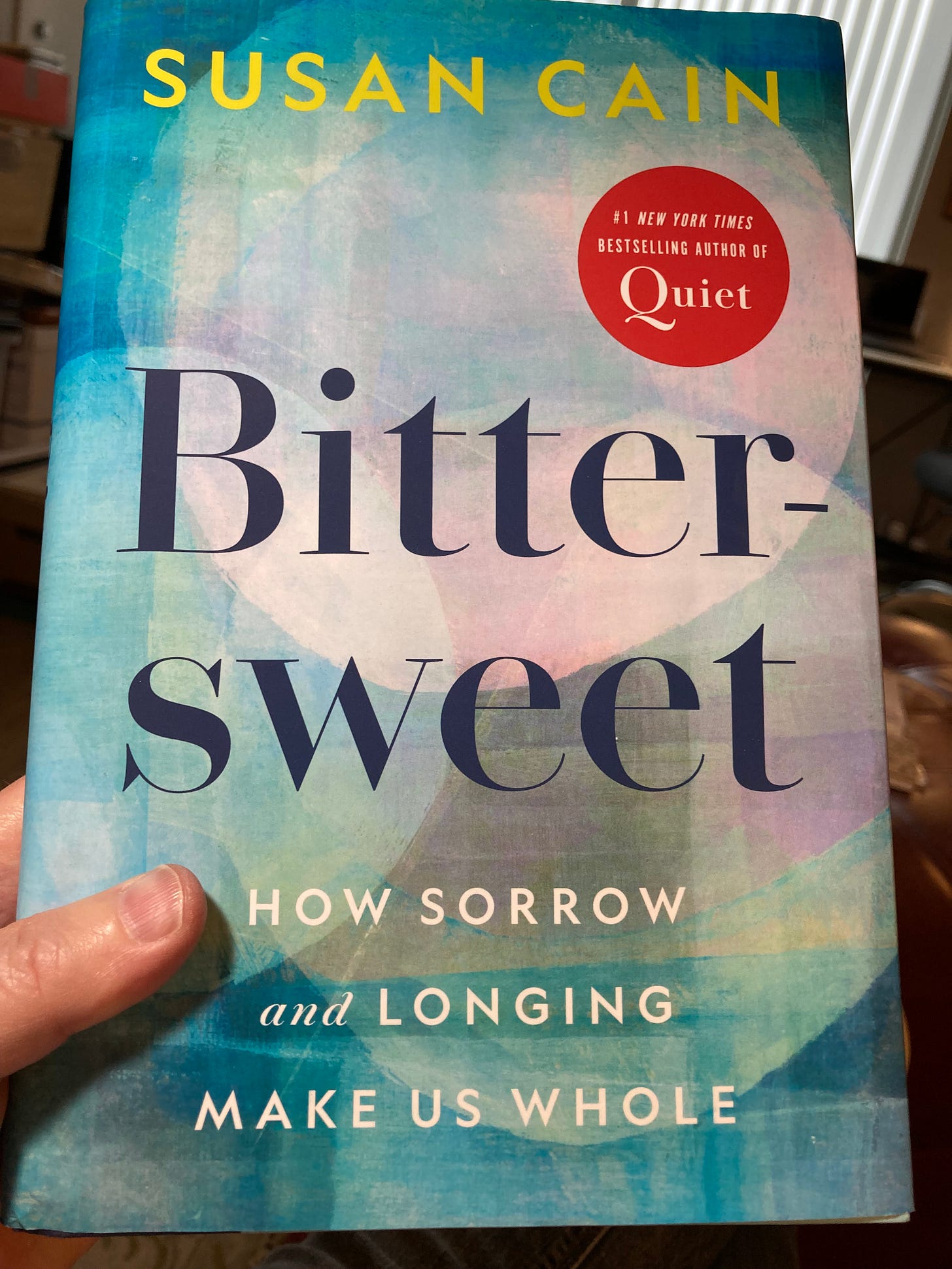Nightwalking in the Key of C Minor
On Susan Cain's Bittersweet
The record needle drops, with its accompanying click, hiss, then pops of milky-sounding vintage vinyl, on Fleetwood Mac’s “(Got Me) Hypnotized.”
My first choice would’ve been The Left Banke’s “Walk Away Renée,” but that’s actually in the key of A. Not what we were after.
So I flipped back over to The Mac song to see if there was a different effect on my emotional reaction to the two. “Renée” sounded like a minor key to me (maybe it’s those syrupy strings), but ironically has a brighter beat than Hypnotized’s smoky-dreamy shuffle. Damn I love that Bob Welch tune—it’s magical, haunting—pure Nightwalking music.
I mean, go check them out for yourself.
I’ll wait.
So what did you think? Maybe since I’m such a big lyrics guy, therein lies the difference. One is about a sad breakup, the other a dream-meditation on … well, you tell me. Between a strange, strange pond in North Carolina and bodily flying over Mexico all Carlos Castañeda-style, I’m still mesmerized by it years after first hearing it (and it is in the key of C minor).
That’s how author Susan Cain begins her latest book Bittersweet, asking why “sad songs say so much.” (Apologies to Elton John, who has had his fair share of bittersweet compositions.)
But you’re probably wondering, why this talk of the key of A or C minor or even music’s effects on emotions?
I’ll let Susan Cain explain it: “Think how many beloved musical genres tap into longing and melancholy … even pop music is increasingly written in the minor key—about 60 percent of songs today, compared with only 15 percent in the 1960s,” [here she cites the research of E. Glenn Schellenberg and Christian von Scheve, and further states in a footnote]:
“A musicologist in 1806 described the key of C minor as a ‘declaration of love and at the same time the lament of unhappy love. All languishing, longing, sighing of the lovesick soul lies in this key.’ (In contrast, the key of C major is ‘completely pure. Its character is: innocence, simplicity, naivety, children’s talk.’)”
As I read that my Stargazing inner lens quickly snapped into focus and I went off Internet surfing for some music in the key of C major. There I came up with everything from the Beatles’ “Let It Be” to Wham’s “Wake Me Up Before You Go-Go”—and particularly Leonard Cohen’s “Hallelujah,” which figures prominently throughout Cain’s book. (I immediately recognized C major as the “Daytalking, relational” key and C minor as the “Nightwalking, introspective and moody” style of my wacky personality triad. Stargazing filled in those cracks.)
Which leads me to the book itself.
It’s a bit of a mish-mash—one that I found occasionally intriguing, deeply moving, and particularly urgent and persuasive. It’s part memoir, part journalistic fact-finding peppered with research and interviews, and lastly a resource for people who may be struggling with loss, depression, isolation and loneliness, or bitter family legacies.
To be honest, right now that’s a lot of people.
Bittersweet is divided into three parts: the first connecting sorrow and longing to questions about love and relationships, creativity, and loss. Part two focuses on the uniquely American obsession with “winners” and “losers,” toxic positivity and workplace cultures that promote or sustain it. The final part tackles mortality, impermanence, and grief—and a question I found particularly interesting: Whether or not we genetically inherit the pain of our parents and ancestors—and if so, is it reversible?
That chapter of the book (Chapter 9) was probably the most fascinating to me, because it brought together everything I think Cain wanted to accomplish by writing the book: melding her history (past and present—her relationship with her mother, and losing both her father and older brother to COVID-19 last year), grief and guilt, and research into the question of whether pain and suffering is somehow absorbed into the body and carried forward to subsequent generations.
I won’t divulge whether that theory holds up, but in some ways I got the feeling the research is still in its infancy. And hey, that’s exciting news. Moreover, it seems that by first acknowledging their ancestral pain, people are able to redirect its negative effects in a more positive way. “For me,” Cain declares, “writing this book was yet another act of transforming the sorrow and longing of the past into the wholeness of the present.”
“Live as though all your ancestors were living again through you,” she quotes an ancient Greek aphorism.
That made me wonder if any of my grandmother’s resentment and pain found its way through my late mother’s DNA and then into mine. It’s a fascinating question, and one I’ll continue to follow.
But let’s end with a poem Cain includes that works like a plumb line centering the entire book, hitting each part and touching on the questions she asks (and attempts to answer) throughout:
“This longing you express
is the return message.The grief you cry out from
draws you toward union.Your pure sadness
that wants help
is the secret cup.Listen to the moan of a dog for its master.
That whining is the connection.There are love dogs
no one knows the names of.Give your life
to be one of them.”—“Love Dogs” by Rumi
As for me? I’ll defer to Fleetwood Mac’s Bob Welch, who takes us out Nightwalking:
“…Now you know it’s a meaningless question
To ask if those stories are right.
’Cause what matters most is the feeling
You get when you’re hypnotized…”
Bittersweet: How Sorrow and Longing Make Us Whole by Susan Cain, Crown/Random House, a division of Penguin Random House LLC, NY, April 5, 2022, US $28.00.




I never finished it! But I loved the beginning setup of the cellist in Sarajevo
There is so much in your compelling essay, Mike, that I want to read it again before commenting.